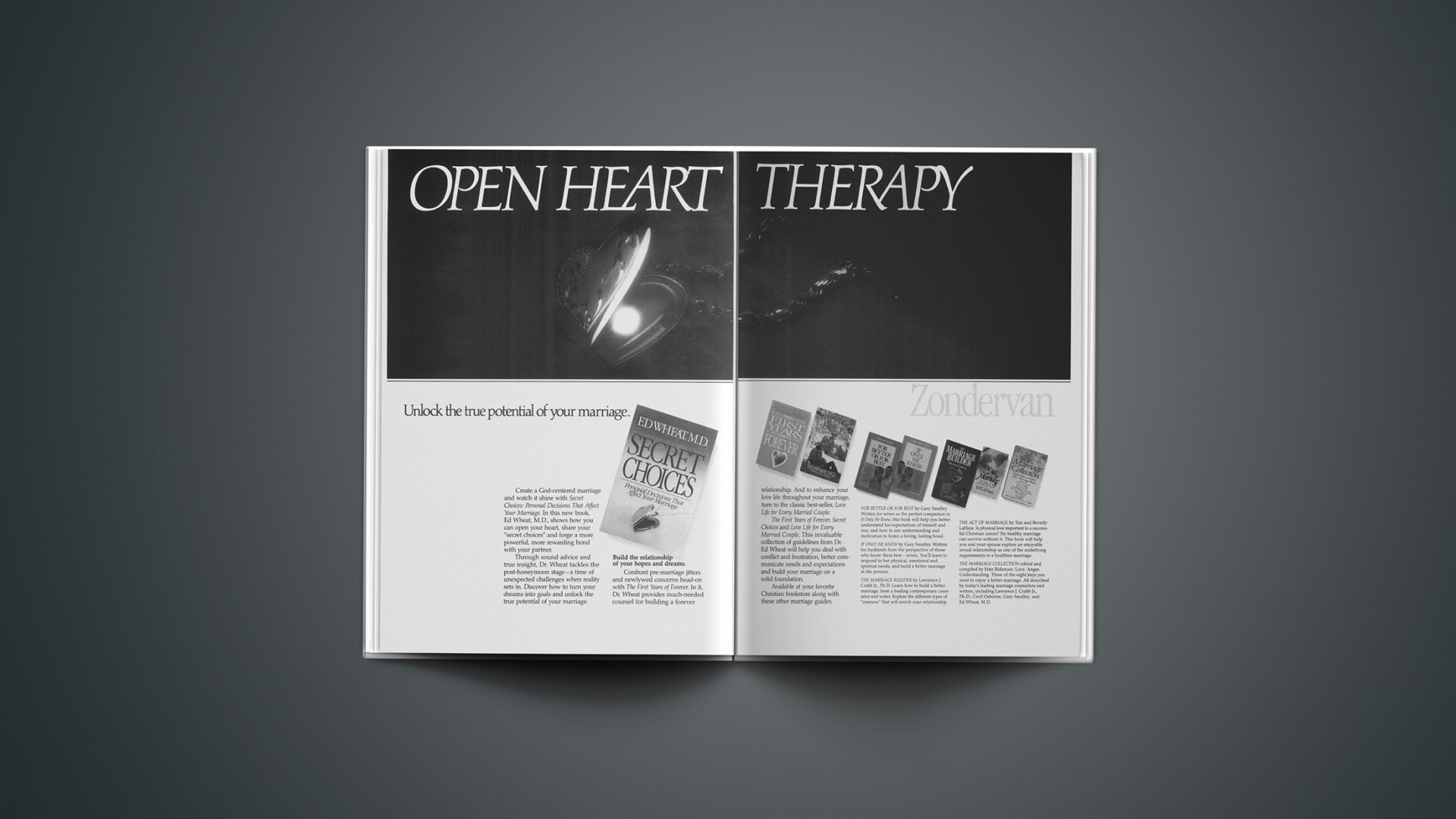Michael Cassidy is the founder of Africa Enterprise, a multiracial ministry emphasizing evangelism, reconciliation, and social change. Since 1962, he has worked to bring together black and white leaders in southern Africa “to find lasting answers for our society.” He spoke with CHRISTIANITY TODAY during a recent visit to the United States, and offered the following insights on his native country.
• On new South African President F. W. de Klerk: De Klerk, who has a more friendly manner than [past president] P. W. Botha, has generated some new feelings of hope. In the run up to the election, he indulged in some very strong reformist language. The question is whether this was purely pre-election rhetoric or whether there is going to be a genuine delivery of the goods, which the country needs right now. Undoubtedly he has a realization, maybe beyond what Botha had, of the seriousness of the present state of affairs and of the fact that the situation cannot be coped with by more suppression and force.
• On the antiapartheid marches in mid-September: It was an act of political realism when [de Klerk] allowed these marches to take place. By doing so, he is recognizing validity in the protests. It’s not just a bunch of agitators [marching]; the whole nation is genuinely anxious about what is happening and deeply concerned to prevent us as a nation going over the precipice.
• On the future of apartheid: The process of dismantling apartheid is now irrevocable. One way or another it’s going to be sweeping and total, either by cooperation of the government in the process of unwinding apartheid, or by irresistible pressures that force all the leading players to the conference table, or by revolutionary upheaval.
I am a little more hopeful [now than several years ago] that it can be accomplished peacefully. But my optimism is guarded, because government has a history of dancing the nationalist jig—one step forward and two steps backwards. If the Christian church is in the act seriously—if evangelical Christians can be involved with a valid social concern, and if the Dutch Reformed church would stand by its statement that apartheid is sinful and wrong—maybe, just maybe, we can come around the corner nonviolently.
• On evangelical involvement in South Africa: The sad fact, which history will have to relate, is that for the first 40 years, evangelicals were out of the action; they did not manifest the kind of social and political concern that could have made a great difference.
[The evangelical church of South Africa] is like a sleeping giant that is stirring. I see signs that it is suddenly realizing it needs to be in the game in ways that it hasn’t been before, and maybe even realizing that it has some muscles that have not been used before. If we can get a kind of enlightened evangelicalism, which brings the emphases of evangelism and renewal but also develops—even at this near-midnight hour—a credible social concern, [the evangelical church] could help the country turn the corner. This is my great prayer, that the stirrings will quickly mature into a strong movement of compassionate evangelicals.
• On solutions: For significant change to take place in a nation like ours, there’s no use just having some adjustments made in structures and laws at the top level, although that is of paramount importance. You’ve got to involve grassroots people in changing their attitudes and getting involved in the problem-solving mechanisms.
In South Africa there’s a great spirit of paralysis and a spirit of fear. People are so paralyzed by the “macro” problem, they feel there is nothing they can do about the “micro” problem where they are.
The great tragedy of apartheid is not how dreadfully it has failed, but how tragically it succeeded, in the sense that people have developed separate lives. Whites just don’t have an understanding of where blacks are at, the pain the system produces, the problems created by the structures for black people. So the simplest yet most profound thing that the average person can do is to sit down with another person [of another race] and have a meal together.
Many white churches have developed what we call “centers of concern.” One church in Johannesburg ministers to about 400 black people a week, through meals; sewing and carpentry classes, where people learn how to make a bit of income; prenatal care; medical and dental care.
• On American evangelicals: In South Africa we feel that some North American evangelicals are too gullible. North American leaders are too ready to accept the line offered by many South African whites, which says the only problem with South Africa is that we’re misunderstood, and we’re really trying very hard to fix our problems. We’re a Christian country; we are against communism; and therefore we just need a bit more encouragement and everything will come right. [They believe the line] that apartheid is not quite as bad as it’s made out to be, that blacks are better housed, fed, and clothed than in other parts of Africa. That might be true, but it is the evasion of a serious moral issue by a materialistic rationalization.
• On spiritual battle: It may sound like a platitude, but the greatest thing we need is the prayers of God’s people. Having lived with and under and in apartheid all my life, I can say it is not just a political philosophy. It’s a stronghold. And a stronghold in my mind is an area of individual or corporate thinking that has been captured by the Evil One. There is something demonic about apartheid. Paul says that strongholds do not come down with weapons that are carnal, but weapons that are mighty through God. Those alone can pull down a stronghold.










